Imagine you’ve just been promoted to your first leadership position. The former leader had unexpectedly quit. You ask yourself, is this a “right place at the right time” situation? Or am I simply a warm body and “somebody” has to take the reins? Well, I was that somebody. And my excitement was met with equal parts overwhelm and fear. What did I know about leading—a team of 20 people no less? To make matters worse, the organization offered no leadership training. I hadn’t the slightest clue what core leadership skills could help me succeed. My former leader took a “command and control” approach, and my new leader was relaxed and easygoing. But what kind of leader did I want to be? And what development did I need to thrive?
Importance of Developing Core Leadership Skills
Organizations often promote employees into leadership roles based on their technical skills alone. They fail to assess whether the employee has leadership skills—or potential to develop them. If the organization does not offer foundational leadership training, as mine didn’t, these new leaders are truly left to figure it out on their own.
Ensuring your leaders have core skills is key to building a strong leadership foundation across your organization. When leaders at every level have essential skills and know what’s expected from them, you start to create a culture in which leaders model effective behavior and hold one another accountable. What’s more, proficiency in core skills protects against biases based on individual reputations—he’s the leader who listens, they’re the leader who coaches, she’s the leader who values feedback, and so on. Shared leadership fundamentals also ensure a healthy talent pipeline of employees who are prepared to succeed in leadership roles.
When leaders share core skills, they are better aligned on how work will happen, which is essential to improving productivity, weathering change, and achieving objectives. A consistent leadership culture grows and retains leaders and supports healthy organizational culture for all employees.
When leaders share core skills, they are better aligned on how work will happen, which is essential to improving productivity, weathering change, and achieving objectives.
What are the 7 core leadership skills?
Developing core leadership skills is essential for leaders to guide their teams and achieve organizational goals. Although there is no shortage of top skills to choose from, here are seven skills that leaders at every level need.
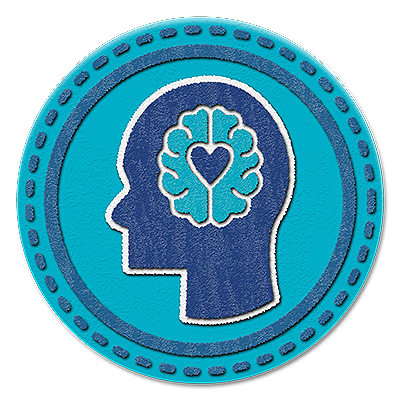
1. Emotional Intelligence
Definition: Emotional intelligence (EQ) enables leaders to build and maintain trusting relationships with team members by understanding the emotions and behaviors of others and themselves.
Why it matters: In the past, workplaces often prioritized technical skills and cognitive intelligence. There was a belief that emotions had little relevance in professional settings and that discussing emotions at work was a sign of weakness or unprofessionalism. However, EQ is now more widely accepted as a critical component of effective leadership and team dynamics. And leaders must navigate their own emotions while considering those of their team members.
For example, one of my peers once concluded that two of their team members weren’t a good fit for their jobs. I asked my peer how she had come to this decision and discovered that instead of asking questions about meaningful work, workplace culture, and individual value, she had asked what they did and didn’t like about their jobs. The honest answers they gave made her irritated to the point that they said, “Then what are you still doing here?” Her decision to respond abruptly and without empathy shifted the tone of the conversations and dissolved trust and the assumption of positive intent. After these conversations, the two team members left the organization, which delayed projects and damaged team morale.
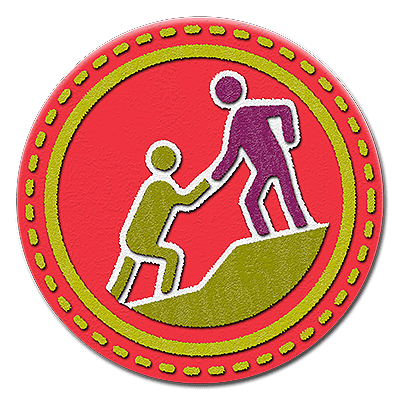
2. Coaching and Developing Others
Definition: Leaders who coach and develop others facilitate growth by delivering feedback and developmental guidance to enhance skills and capabilities for current and future roles.
Why it matters: Leaders who can effectively coach and develop others empower their team members to learn and build new skills that improve team performance. They see higher levels of engagement, stronger team dynamics, and adaptability through change. And there are broad benefits across the organization, too. By investing in the growth and development of teams, leaders cultivate a culture of self-motivation and continuous improvement. Workplaces that encourage learning increase employee satisfaction and spur innovation that can drive progress in competitive markets.
And leaders don’t just want to learn how to coach others—they want to be coached too. In fact, leaders who get quality coaching from their own leaders are 1.5X less likely to feel they have to change companies to advance their careers.

3. Compelling Communication
Definition: Leaders need to be able to convey information clearly and concisely to individual team members and groups in a focused and influential way that captures their attention. We call this compelling communication.
Why it matters: Leaders are in the driver’s seat to motivate their teams around an organization’s vision and goals. But compelling communication isn’t just about getting team members on board. It’s about creating an inclusive, uplifting vibe within the team. It’s about building trust, sparking collaboration, and helping everyone work through stress and conflict as it arises. Communication is also a practical tool that helps leaders convey information to get things done. When leaders communicate clearly and effectively, everyone knows what’s what, who’s doing what, and why it’s important. Efficient communication greases the wheels of productivity with clear instructions and streamlined workflows.
Perhaps more than anything, a leader’s compelling communication creates a shared identity among team members so that they feel driven to accomplish their goals. It keeps everyone together, rowing in the same direction toward success.

4. Decision Making
Definition: Decision making involves recognizing problems and opportunities by studying information, considering alternatives, and taking timely and informed actions to achieve the best outcomes.
Why it matters: Every day, leaders are faced with dozens of choices, big and small, that could make or break their organization. It’s like being the conductor of an orchestra where every decision you make affects the harmony of the whole ensemble.
When leaders are ace decision makers, they propel their organizations forward. They weigh the pros and cons, see the bigger picture, and then make a call that sets the whole team in motion. And good decisions lead to good outcomes. In a world where competition is fierce and change is constant, organizations need leaders who can make the right call at the right time.
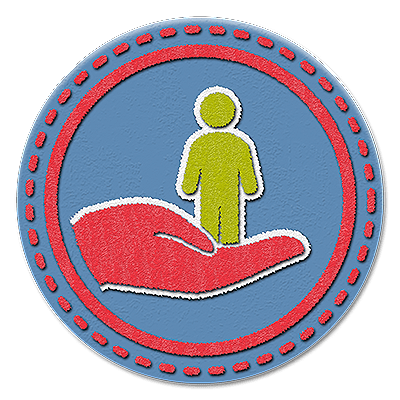
5. Delegation and Empowerment
Definition: Strong leaders can accelerate results and build capability by assigning tasks and decision-making responsibilities to individuals and teams with clear boundaries, expectations, support, and follow-up.
Why it matters: Leaders who distribute work to team members can focus on strategic priorities while enhancing their team’s efficiency and providing a path for growth. By entrusting responsibilities to others, leaders can empower their teams and promote collaboration over favoritism. It’s a great way to help team members develop new skills, enable their unique skills to shine, and encourage initiative and independent problem solving. It also enhances leaders’ decision-making capabilities and ensures that tasks get done.
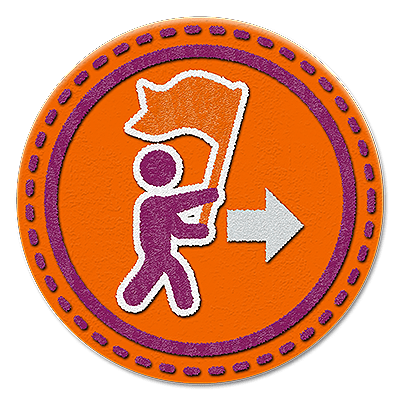
6. Execution
Definition: Execution refers to a leader’s ability to carry out an organization’s strategies while focusing on the most critical priorities.
Why it matters: Put another way, leaders skilled in execution know how to transform plans into action. Good execution involves translating ideas into actionable steps, managing resources efficiently, monitoring progress, and overcoming obstacles to achieve goals. It also involves holding team members accountable for their roles and responsibilities, which fosters a culture of responsibility and ownership. Effective execution sets leaders apart through their ability to turn plans into measurable results. And, ultimately, good execution is a linchpin in growing sustainably and maintaining your company’s competitive edge.
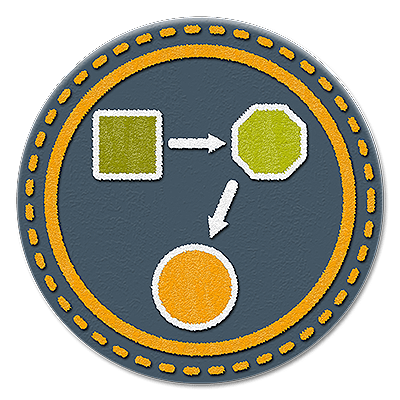
7. Facilitating Change
Definition: Strong leaders can drive change initiatives and encourage others to engage in and implement new approaches to address problems and opportunities.
Why it matters: In today’s fast-paced world, organizations need to be nimble. They need leaders with the magic touch who can turn uncertainty into opportunity, helping teams to pivot, innovate, and stay ahead of the curve. When leaders are good at facilitating change, they can rally the troops, get everyone on board with the new direction, and make sure the whole process is as painless as possible. And change isn’t just about surviving—it's about thriving. When leaders embrace change and represent it to their teams as an opportunity to grow and improve, everyone – including the organization – comes out on top.
How to Develop and Improve Core Leadership Skills
Prioritizing essential development of core skills is no longer a nice-to-have for leaders, it’s a must-have. In fact, leaders tell us that they want to make time for it. Leaders want to immerse themselves in targeted, group-based learning experiences with their peers. They want to learn super relevant skills that they can put into practice that very same day. They want to have critical coaching conversations with their managers about their progress.
Organizations can give leaders these learning experiences and help them develop core leadership skills by offering a balance of formal and informal leadership training. Effective development needs to maximize both efficiency and impact. In my experience, training that does it well blends quick bursts of just-in-time digital learning with more comprehensive classroom experiences to fully explore a core skill area. Leaders must also be able to practice their skills and receive feedback on progress. And, of course, relevancy is king when it comes to engaging in training and retaining what you learn.
Practice Makes Progress/Proficiency
After 30+ years in leadership, I often reflect on my early days as a leader when I was enlisted to lead a team of over 20 people I barely knew. Fortunately, I received early guidance from a well-respected leader, who later became my mentor. That leader helped me acclimate into my position by coaching me forward. They gave me a safe space to ask questions and figure out how to balance the business and people sides of leadership. Consistent coaching, structured development, timely feedback, and practicing core leadership skills helped me to flourish into my first leadership role—and every role that came after it.
So, what kind of leader did I become after all these years? Well, you could say I became a more consistent one, or perhaps a more well-rounded one.
Learn more about core leadership skills with our on-demand webinar, Maximize Your Impact: Design Development for Every Moment of Leadership.
Moe Mitchell is the manager of DDI's learning content design team. She's passionate about providing leaders with insightful, relevant, engaging, and practical learning experiences to enhance their effectiveness and contributions. When not involved with content design, Moe, an American Red Cross Baby Hero, loves to spend time with family and friends, her three dogs, gardening, cooking, and taking a good nap!
Topics covered in this blog

